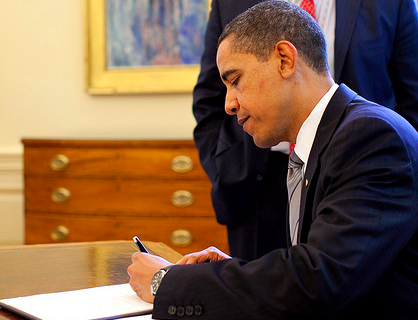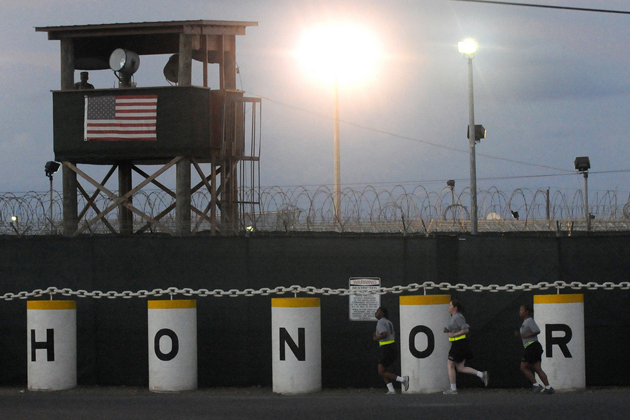
<a href="http://www.flickr.com/photos/speakingoffaith/3514709815/">On Being</a>/Flickr
When it comes to protecting whistleblowers, President Obama’s track record has been fairly bleak. In his first term, he trampled over them on his quest to aggressively prosecute government leakers. But Obama’s legacy on the issue may have changed on Tuesday when he signed a law called the Whistleblower Protection Enhancement Act, a far-reaching bill that affords federal whistleblowers a host of new safeguards.
This hard-fought law (activists have been working to get it passed for more than a decade) upgrades the existing protections for federal employees who witness waste, fraud, or abuse within the federal government.
Specifically, the law lowers the standard of proof whistleblowers must provide in order to receive protection and closes judicially-created loopholes that were added to the original 1989 Whistleblower Protection Act. It also makes it easier for the Office of Special Counsel, the federal government’s whistleblower protection agency, to discipline employers or agencies who retaliate, and it provides compensatory damages to certain whistleblowers who have successful cases. (This compensation is different than the monetary awards available to certain whistleblowers in the private sector. The Securities and Exchange Commission, which received 3,000 tips last year, rewards private sector whistleblowers who expose financial corruption, and whistleblowers who bring Qui Tam cases are also eligible for compensation under the False Claims Act.)
The Obama administration has angered whistleblower advocates in the past for being particularly tough on whistleblowers and prosecuting them under the Espionage Act. But, with the passage of the Whistleblower Protection Enhancement Act, whistleblower advocates seems to think the administration has turned over a new leaf. According to the Government Accountability Project (GAP), Obama restored a large portion of the bill that protects national security whistleblowers after the House gutted it via a presidential directive.
“Most Presidents have offered lip service for whistleblower rights, but President Obama fought to give them more teeth,” Tom Devine, legal director of GAP said in a statement.







